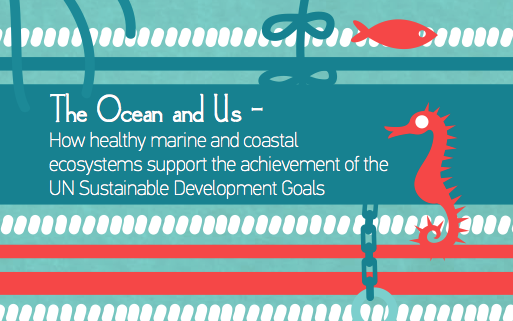
How healthy marine and coastal ecosystems support the achievement of the UN Sustainable Development Goals
The fundamental role that ecosystems and the goods and services they provide to people is reflected in many aspects of humanity’s religions and traditions stretching back to the dawn of civilization. More recently, the importance of ecosystems has been recognized at a global, political level with the UN Millennium Ecosystem Assessment in 2005, and the establishment of the Intergovernmental Science-Policy Platform on Biodiversity and Ecosystem Services (IPBES).
Marine ecosystems are particularly important, with fisheries and aquaculture alone providing livelihoods to more than one in ten people on the planet. While there is a growing scientific body of information and knowledge on the role of healthy marine and coastal ecosystems, both for sustainable development in general, and for achieving the Sustainable Development Goals in particular, much of it is neither fully understood nor fully integrated into decision making decision making and planning processes.


